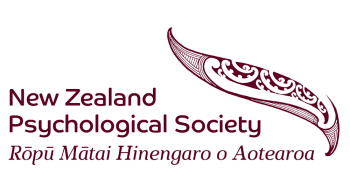
Current Award Recipients
The 2025 Award Recipients
Goddard Early Career Award 2025 - Dr Logan Hamley
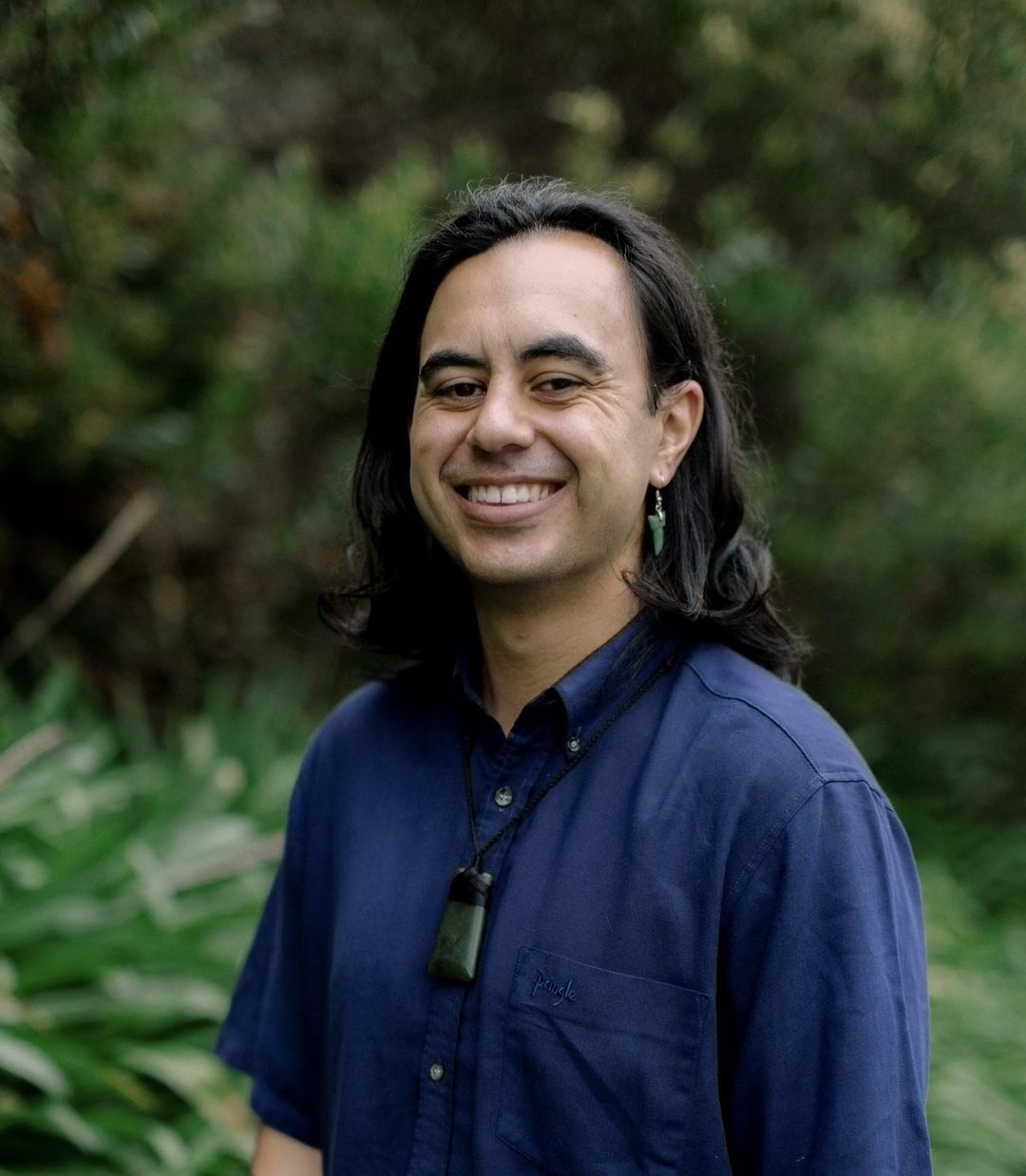 The G V Goddard Early Career Award commemorates the contributions made to psychology by Professor Graham V Goddard, Head of Department of Psychology, University of Otago. This award celebrates early career achievement and excellence in applied and professional psychology. The nominee will have demonstrated a high degree of scholarship in three or more published articles from postgraduate research within seven years of the nominees graduation.
The G V Goddard Early Career Award commemorates the contributions made to psychology by Professor Graham V Goddard, Head of Department of Psychology, University of Otago. This award celebrates early career achievement and excellence in applied and professional psychology. The nominee will have demonstrated a high degree of scholarship in three or more published articles from postgraduate research within seven years of the nominees graduation.
The 2025 G V Goddard award is awarded to Dr Logan Hamley, (Ngāti Rangi, Whanganui) who is a senior Kaupapa Māori psychology researcher at Whakauae Research Services. This is in recognition of his consistent flow of high impact research that draws on kaupapa Māori and critical Indigenous methodologies to understand psychological phenomena.
Dr Hamley has published 22 journal articles and has been invited to present at numerous local conferences including the New Zealand Psychological Society Conference, the International Indigenous Research Conference and many international events such as Narrative Matters Conference, International Conference on Critical Health Psychology and the Indigenous Australian Health Alliance Conference.
He taught the first-ever Indigenous psychology undergraduate course in Aotearoa and was instrumental in developing the kaupapa Māori psychology minor in a mainstream education setting. Dr Hamley is a guest editors for the New Zealand Journal of Psychology special issue “Unmasking Racism and Oppression in Psychology and for the special issue “Māori Data Sovereignty: Research, Practice, and Policy” for the Journal of the Royal Society of New Zealand.
Dr Hamley has been a key member of the Working to End Racial Oppression (WERO), Ministry of Business, Innovation and Employment (MBIE) funded research programme. He was one of the authors of the WERO report: Systemic Racism in Psychology. This highlights the allyship opportunities for psychologists and stakeholders to respond to the Waitangi Tribunal claim and the upcoming apology to Māori. There is strong challenge to reduce the oppression faced by Māori and other minoritised groups face in workplaces and training programmes.
Dr Hamley has had significant influence in developing our understanding and the application of whakawhanaungatanga for young people such as his publication that explores the insights of 51 rangatahi “Te Tapatoru: a model of whanaungatanga to support rangatahi wellbeing” which identifies the significant components as 1) Ko wai? A reciprocal connection 2) He wā pai, a genuine time and place (3) He kaupapa pai, a genuine kaupapa.
He has continued to explore the significance of whakawhanaungatanga for takatāpui who are transgender and non-binary as a research associate for the Rutherford-funded Counting Ourselves project. His hauora research has earned him the HRC Māori Health Emerging Researcher First Grant to further explore the various ways cultural connections are expressed among Māori youth.
One of the more recent and intriguing publications is the “My Poppa, He Was One of My Biggest Role Models: How Young Maori Men Negotiate Racism and Identity in the City” . He developed data poems as a form of pūrākau from interviews with twenty-two young Maori men to explore alternative richer identities that beyond the norms of Māori masculinity counter-storying, humour, and takatapui (LGBTQ+ Maori).
Dr Hamley has demonstrated strong leadership in Māori health research. He currently serves as a co-chair of Ngā Pou Mana, a national organisation representing the Tangata Whenua allied health workforce. He is one of the nine representatives who sit on the Māori Health Committee, a statutory committee of the HRC responsible for advising the Council on health research for Māori.
Dr Hamley is a successful highly regarded researcher, innovator, writer, leader and collaborator. He continues to challenge the harm of Eurocentric psychology in understanding the diverse needs of rangatahi tāne within mental health systems in Aotearoa. He has then offered alternative systems and therapeutic approaches that centre Te Tiriti o Waitangi. He is a worthy recipient of this years GV Goddard Early Career Award.
The Hunter Award 2025 - Professor Waikaremoana Waitoki
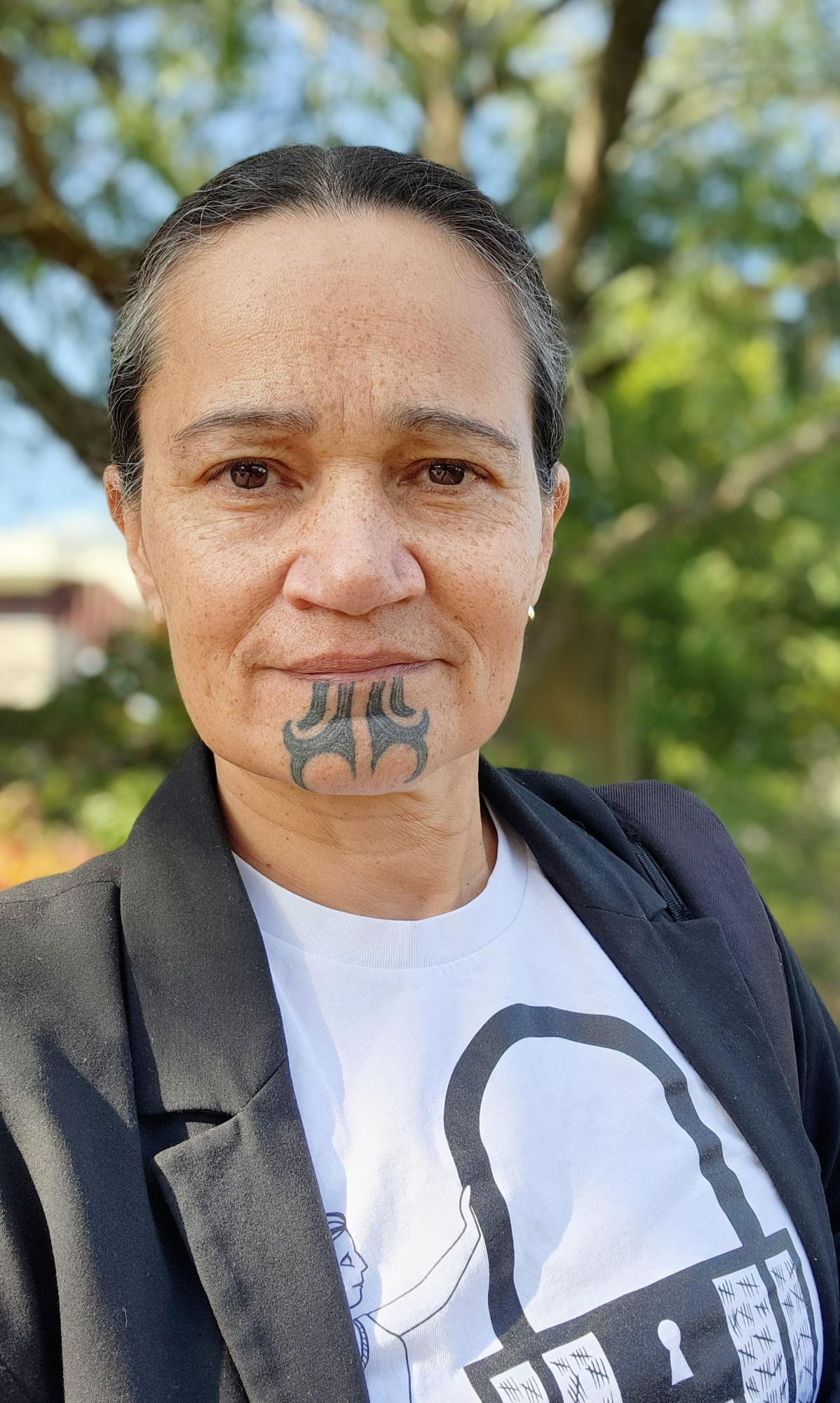 The Hunter Award was established in 1972 in memory of Sir Thomas Hunter who was the first professor of psychology appointed in Aotearoa/New Zealand. It is award of distinction reflecting long-term achievement in scholarship, research and professional practice.
The Hunter Award was established in 1972 in memory of Sir Thomas Hunter who was the first professor of psychology appointed in Aotearoa/New Zealand. It is award of distinction reflecting long-term achievement in scholarship, research and professional practice.
The recipient of the Hunter Award for 2025 is Professor Waikaremoana Waitoki (Ngāti Hako, Ngāti Mahanga) for outstanding and enduring contributions to the field of psychology in Aotearoa and beyond. She is a pivotal figure in the transformation of psychology in Aotearoa, most notably but not limited to advancing kaupapa Māori psychological frameworks, Te Tiriti o Waitangi based practice, and the recognition of Māori knowledge systems within psychological theory, research, and their clinical application.
As a professor at Te Pua Wānanga ki te Ao, the Faculty of Māori and Indigenous Studies, University of Waikato and as Associate of Dean Research she is able to apply her research to academic systems. She has chaired Te Kāhui Mana Tāiko (Te Pua Wānanga, FMIS Research Ethics), member of UoW Health Research Ethics Committee, He Whenua Taurikura (Ethics Committee), and the Understanding Police Delivery Advisory Panel (Ethics Committee).
Professor Waitoki served with distinction within New Zealand Psychological Society as Bi-cultural Director for NSCBI and President of the NZPsS during COVID19 from 2020 to 2022. Her professional expertise and mātauranga Māori as the current Kaihautū of the NZPsS Executive Committee continues to be invaluable.
Professor Waitoki frequently represents Aotearoa on the global psychology stage. She is a founding member of the Asia Pacific Psychology Alliance. She was one of ten, selected to be on the working party of International Declaration on Competencies in Professional Psychology. Her work has facilitated the establishment of Māori and Indigenous global psychology networks, fostering international collaboration and knowledge exchange. She is the holder of many international relationships with indigenous psychology associations and societies, such as, Co-Editor-in-Chief of the Lowitja Journal of Indigenous Wellbeing.
Professor Waitoki has been at the heart of significant systemic changes to reduce barriers for tangata whenua in psychology. This includes establishing He Paiaka Tōtara, a focal point for Māori Psychologists seeking cultural connection, collaboration, professional support and development. She was the science lead for the Working to End Racial Oppression (WERO) research programme funded by Ministry for Business, Innovation and Employment. The WERO team published the report: “Systemic racism and oppression in psychology: Voices from Psychologists, Academic Staff, and Students”. This is a significant challenge for our psychology institutes to improve our current practices.
Her curriculum vitae lists 34 peer reviewed journal articles, 23 contributions to books, disseminating knowledge at 27 conferences and 112 hui, wananga, technical reports and press reports. The variety of places, people and communities is testimony is itself of her ability to communicate complex and often challenging ideas in different ways and bringing psychology into the everyday.
Professor Waitoki has helped to expand our understanding of what might constitute psychology. She was co-editor of Te Manu Kai i Te Mātauranga: Indigenous Psychology in Aotearoa New Zealand, a landmark publication that centres Māori voices and methodologies within psychological research and practice. This is now an essential resource for both Māori, Pākehā, Tauiwi students and practitioners. She has been a lead author on papers such as ‘Four Decades after a ‘Whiter Shade of Pale’’ and ‘A critical race analysis of Māori representation in university strategic documents’ that have collected data to demonstrating the gap between intentions and the practical reality. Furthermore, she has also published responses to how some of these matters can be addressed practically. For example, cultural competency training programmes and Whiti Te Rā, a guide on how to apply traditional Māori wellbeing pathways in practice. Her work has been pivotal in bridging gaps between Western psychological practices and Māori cultural needs.
Professor Waitoki outstanding contributions have been recognised by others including being awarded the Royal Society Te Apārangi Te Puāwaitanga Research Excellence Award in 2022. Her academic scholarship and leadership work is peerless, her ability to collaborate and disseminate to different audiences is exemplary. Furthermore she has tirelessly advocated for systemic change over the years to address inequities, racism, and the enduring effects of colonisation within psychology. She engages with authenticity, compassion, upholding tino rangatiratanga, whanaungatanga, and manaakitanga. It is fitting that with such an exceptional contribution to psychology in Aotearoa, she is this year's recipient of the Hunter Award.
Dame Marie Clay Award 2025 - Megan Fitzpatrick
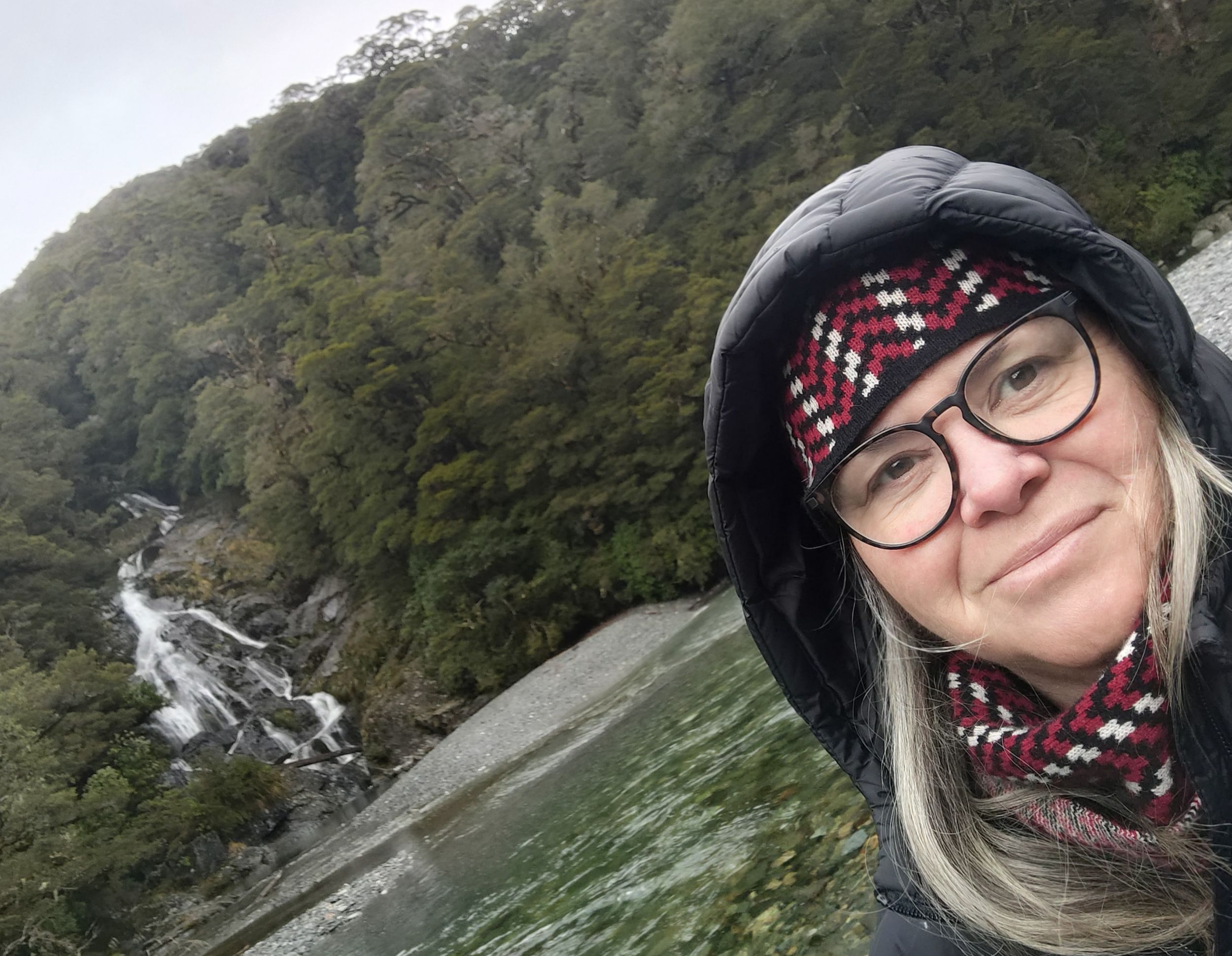 The Dame Marie Clay Award was established in 2008 to recognise this distinguished educational literacy researcher, the first female professor at Auckland University, the development of the world renown “Reading Recovery” programme designed to help young children with early reading difficulties.
The Dame Marie Clay Award was established in 2008 to recognise this distinguished educational literacy researcher, the first female professor at Auckland University, the development of the world renown “Reading Recovery” programme designed to help young children with early reading difficulties.
The recipient of the Dame Marie Clay Award 2025 is Megan Fitzpatrick (Te Rarawa, Ngāpuhi, Ngāti Hine) to acknowledge her valuable contributions to educational and developmental psychology within her research, her practice and dissemination of her work over a substantial period of time.
Megan Fitzpatrick is a registered educational psychologist, working at Te Tāhuhu o te Mātauranga, Ministry of Education. She is the National Specialist Service Lead at the Ministry of Education and a conduit between government and the community. For example, she is able to draw on her past experience and expertise with Kohanga Reo so she can liaise between the Ministry of Education’s Learning Support services and the Te Kōhanga Reo National Trust. In this role she is able to broker relationships and contribute to the strategic direction of this partnership. Megan contributes to regional and national frameworks and resources for practice including Ministry of Social Development parenting resources, and Te Roro o Tōku Whare.
Megan Fitzpatrick continues to make a significant contribution to the national community of psychologists. She is one of the Co-Directors of the National Standing Committee on Te Tiriti Issues as part of the executive of the New Zealand Psychological Society. She is an essential member of the korowai of support for He Paiaka Tōtara, a group for Māori Psychologists seeking cultural connection, collaboration, professional support and development. In her role she has steered the group to establish its independence as a legal entity.
Over the years, Megan Fitzpatrick has developed her own unique framework for practising psychology drawing on mātauranga Māori. This thinking is evident in presentations to local and national groups for example, the Educational Psychology Forum, He Paiaka Tōtara and Ngā Pou Mana. It has culminated in this years 2025 publication of “Te Tomokanga entrance: A place of preparation.” The paper outlines the reflective practice and preparation required of practitioners prior to engagement with haukāinga. She notes that on a marae the tomokanga is a physical and spiritual transition marker, that identifies the significance and seriousness of moving from one space into another, reinforcing the connectedness and opposing forces of life and death, mai i te pō , pō ki te ao (from the darkness to light). She urges us all to apply the careful waiting and expertise for such transitions and to engage in the necessary pre-engagement processes as practising psychologists.
Megan Fitzpatrick is a valued member of the educational psychology university training programmes, supporting the development of our workforce, with special focus on our indigenous workforce. She meets individually with Māori psychology students and supports them through their Masters, and Internship years as another supervisor. Despite the many demands on her time, colleagues comment her willingness to be available to those preparing to enter the profession of psychology.
Consistent with her Tomokanga framework that advises us to pause and prepare before entering, Megan Fitzpatrick is known for her nuanced work, her humility, working behind the scenes, respectfully questioning but also taking ideas, aspirations and making them happen. She is one of the visible voices of educational psychology at a national level.
Megan Fitzpatrick has sustained a significant contribution to educational and developmental psychology. She is a worthy recipient of the Dame Marie Clay award to highlight and celebrate her unique contribution to educational psychology.
Postgraduate Social Justice Scholarship 2025- Grace Jessup
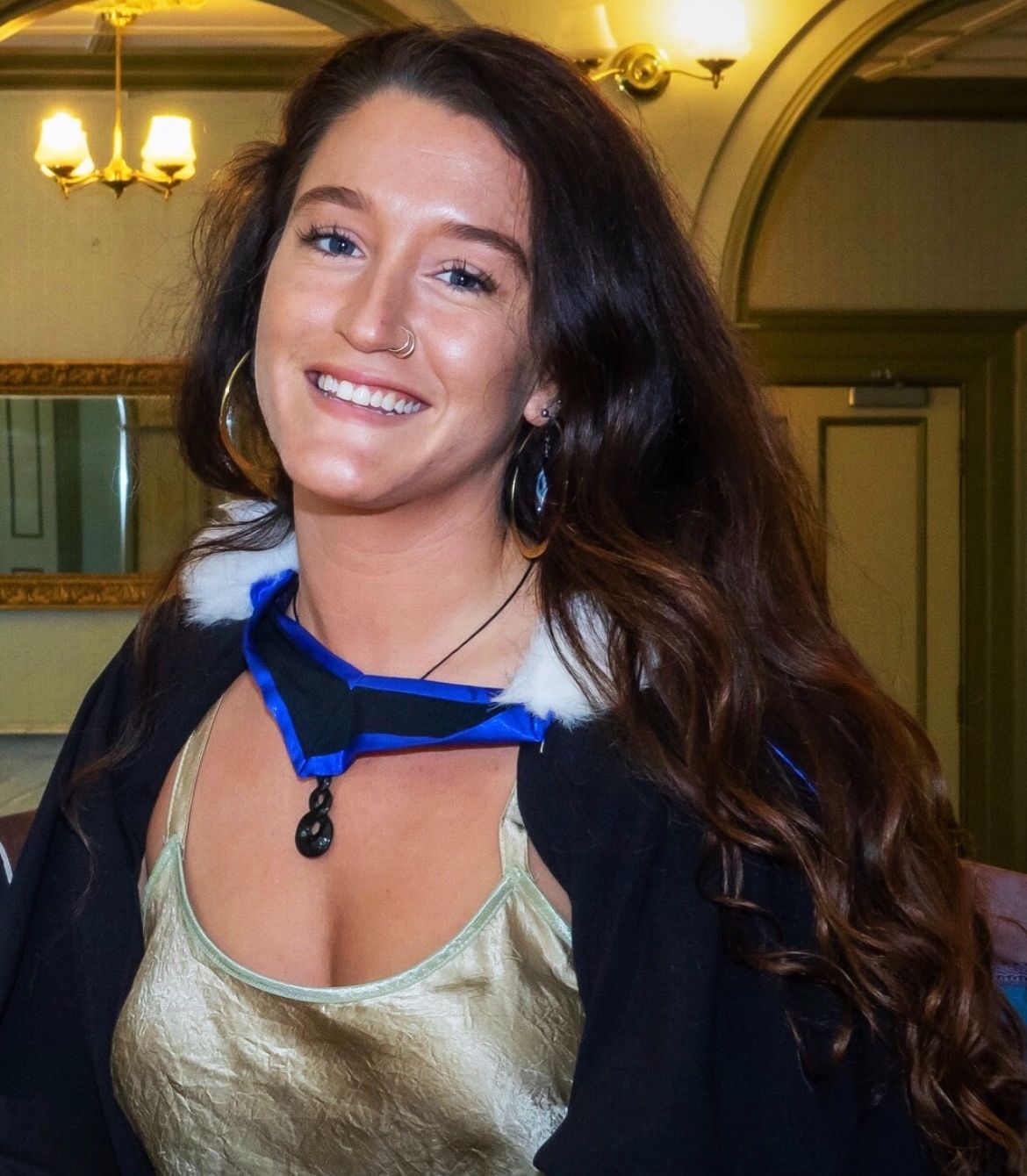
The recipient of the Postgraduate Student Social Justice Scholarship for 2025 is Grace Jessup – studying for a Doctor of Clinical Psychology at the University of Auckland.
Her research is a Māori-centred, qualitative exploration of the impact of separation between Māmā and her tamariki due to incarceration. It is being undertaken with support from the Department of Corrections-Te Ara Poutama, where Grace has been sitting with and conducting interviews with incarcerated mothers.
The committee noted Grace’s research is a growing phenomenon and an area of study that not only needs investigation but clearly aligns to tangible change in an area of social justice that is poorly highlighted and understood. She had a good understanding of both Social Justice and Te Tiriti o Waitangi with high potential impact for psychological practice with groups who experience layers of disadvantage.
Karahipi Tumuaki Presidents Scholarship 2025 - Fern Smith
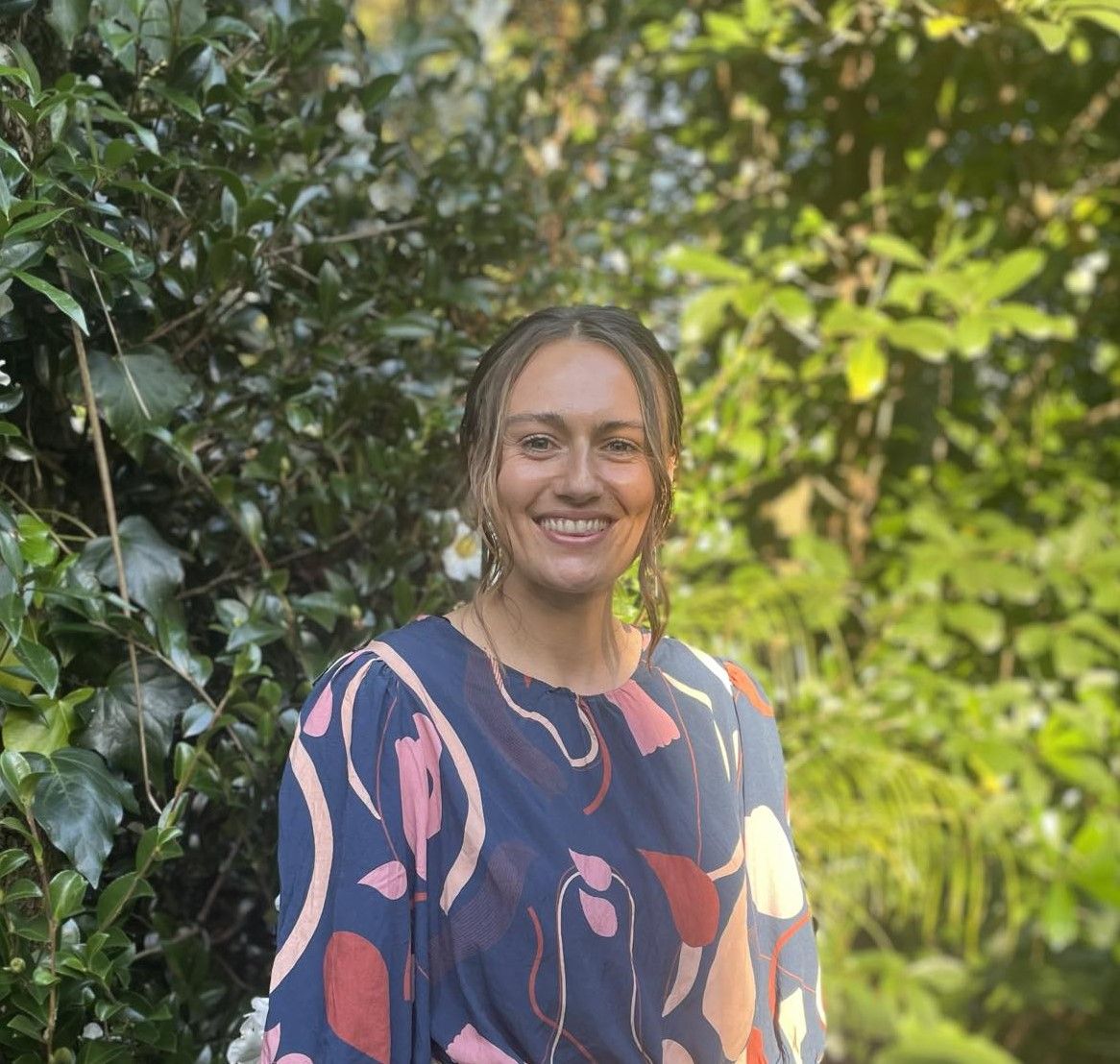
The recipient of the Karahipi Tumuaki Presidents Scholarship for 2025 is Fern Smith, a PhD student at the University of Auckland. Her research seeks to address a paucity of research that explores Māori experiences of abortion and none that explore the unique pressures, tensions and considerations that taitamawahine (Māori girls, Māori non-binary people) may navigate when deciding whether to have an abortion. Considering the question of “How, then, do taitamawahine in Te Tai Tokerau enact their reproductive autonomy when making decisions to have an abortion”? Fern seeks to answer this question by speaking with Māori experts who work in the broad field of reproductive justice, and Māori women who accessed, or tried to access an abortion in Te Tai Tokerau when they were a taitamawahine (aged under 24 years).
The committee noted that Fern has demonstrated a significant gap in research and is clearly able to articulate how the research will inform systemic change for Māori.
Past award recipients
